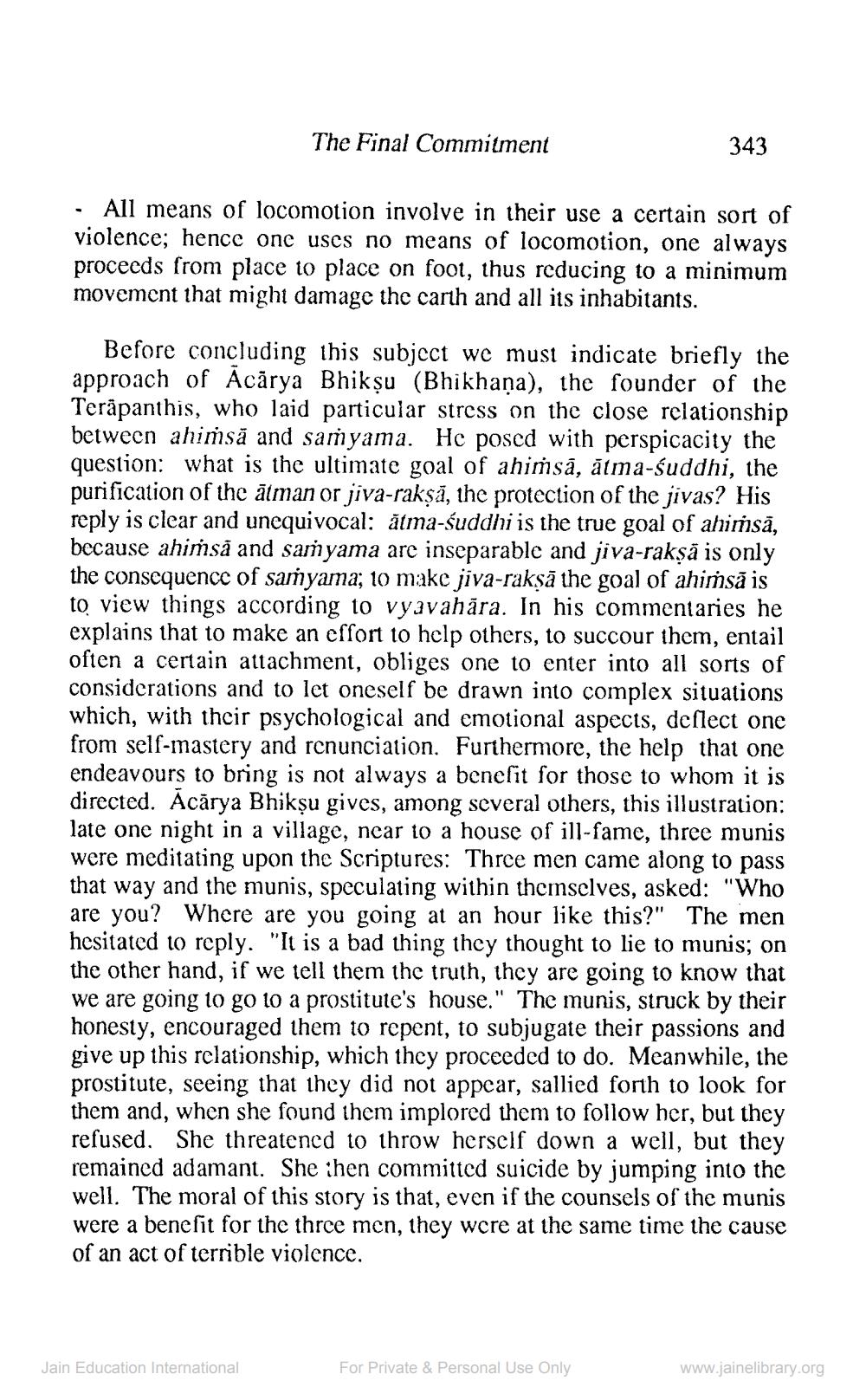________________
The Final Commitment
All means of locomotion involve in their use a certain sort of violence; hence one uses no means of locomotion, one always proceeds from place to place on foot, thus reducing to a minimum movement that might damage the carth and all its inhabitants.
Jain Education International
343
Before concluding this subject we must indicate briefly the approach of Acarya Bhiksu (Bhikhana), the founder of the Terapanthis, who laid particular stress on the close relationship between ahimsa and samyama. He posed with perspicacity the question: what is the ultimate goal of ahimsā, ātma-śuddhi, the purification of the atman or jiva-rakṣā, the protection of the jivas? His reply is clear and unequivocal: atma-śuddhi is the true goal of ahimsā, because ahimsa and samyama are inseparable and jiva-rakṣā is only the consequence of saṁyama; to make jiva-rakṣā the goal of ahimsa is to view things according to vyavahara. In his commentaries he explains that to make an effort to help others, to succour them, entail often a certain attachment, obliges one to enter into all sorts of considerations and to let oneself be drawn into complex situations which, with their psychological and emotional aspects, deflect one from self-mastery and renunciation. Furthermore, the help that one endeavours to bring is not always a benefit for those to whom it is directed. Acarya Bhiksu gives, among several others, this illustration: late one night in a village, near to a house of ill-fame, three munis were meditating upon the Scriptures: Three men came along to pass that way and the munis, speculating within themselves, asked: "Who are you? Where are you going at an hour like this?" The men hesitated to reply. "It is a bad thing they thought to lie to munis; on the other hand, if we tell them the truth, they are going to know that we are going to go to a prostitute's house." The munis, struck by their honesty, encouraged them to repent, to subjugate their passions and give up this relationship, which they proceeded to do. Meanwhile, the prostitute, seeing that they did not appear, sallied forth to look for them and, when she found them implored them to follow her, but they refused. She threatened to throw herself down a well, but they remained adamant. She then committed suicide by jumping into the well. The moral of this story is that, even if the counsels of the munis were a benefit for the three men, they were at the same time the cause of an act of terrible violence.
For Private & Personal Use Only
www.jainelibrary.org




